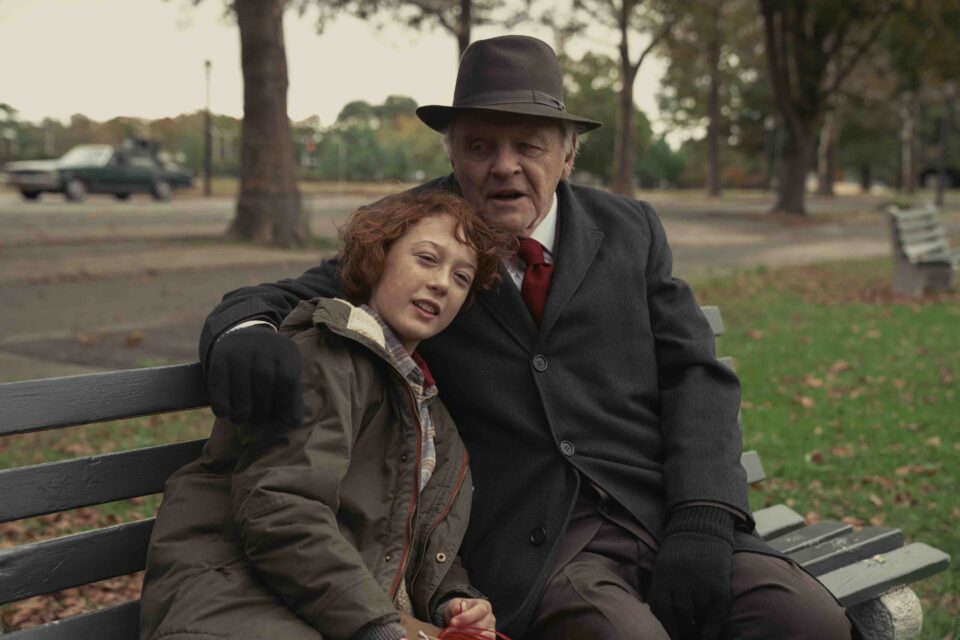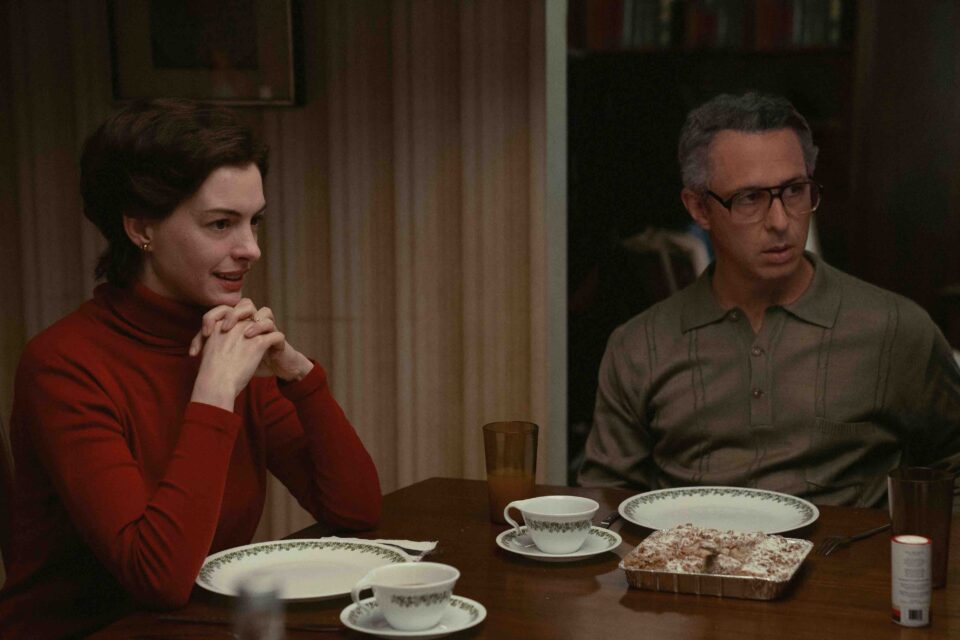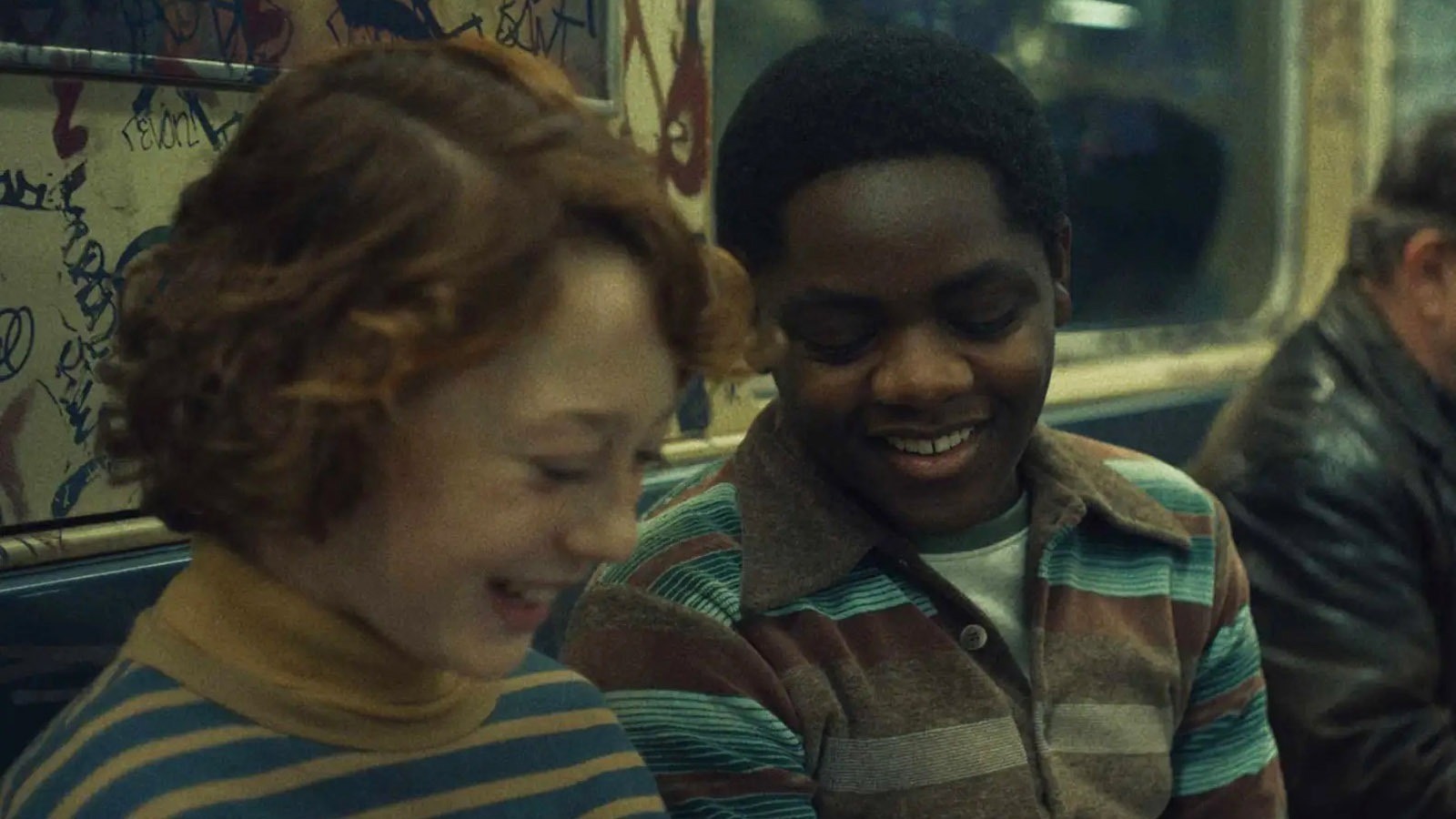What is Armageddon Time in 2022, or 1982? The latest dramatic film from writer/director James Gray (Ad Astra, The Lost City of Z) is a stunning portrait of the powerful and powerless in Ronald Reagan’s America, and its contours have shadowed parallels to our current decade. Set in 1980, Armageddon Time is a semi-autobiographical film peripherally exposing how unchecked xenophobia can propagate within a country until the personal and political are intertwined like a cancerous growth attaching to the bone.
The story, though, is quite tender, centering on Paul Graff (The Black Phone’s Banks Repeta), an artistic Jewish boy from Queens who often bristles at his parents’ wishes for him to pursue a “respectable” profession. Paul befriends a hopeful Black classmate named Johnny Davis (Till’s Jaylin Webb), who dreams of becoming an astronaut. He introduces Paul to the Sugarhill Gang and pot and their connection is apparent from the jump.
Gray examines racism through a variety of adult avatars that instruct or push against the adventurous youth at the center of this coming-of-age film. There are excellent performances from Anne Hathaway, Jeremy Strong, and Anthony Hopkins, but the two teen actors Repeta (14) and Webb (16) are the true propellants of this moving adolescent parable.
When we spoke with Repeta and Webb, our conversation covered their preparations for their roles, being a little afraid of Anthony Hopkins, their mutual respect for the film’s production designer Happy Massee (The Immigrant), and the multitude of meanings for the film’s title.
Can you share a little bit about your backgrounds as actors so far?
Banks Repeta: Well my dad’s a motion picture camera operator and my mom is an actress, so for my whole life I’ve kind of been growing up around movie sets. One day my mom had a commercial and the extra that was gonna play her son was unavailable, so her agent asked if I would like to do the part. She was like, “Hey, I have this part for you, you’re gonna play my son and you’re just gonna sit there and eat cereal.” And I was like, “Wait, will there be any cuddling scenes? Because I don’t do cuddling,” which I thought was funny. My mom thought that was funny, too.
Jaylin Webb: I was always performing in front of crowds even before I did theater growing up. I would do school plays and dances and speeches at my school and sermons in front of my church until I got into theater. I would do different types of musicals with my classmates, and I wanted to kind of transition over into film. So I talked to my parents about it and that’s when we got me an agent, and that’s when everything started to happen.
“My scenes with Anthony [Hopkins] together on set were natural because we were able to become comfortable with each other off the set. We did a salsa dance together and we hung out.”
— Banks Repeta
Jaylin, I read in one of your interviews that you didn’t end up meeting your co-star Anthony Hopkins because you heard that he was in a movie where he eats people.
Webb: Yeah, [laughs]. I was extremely scared. And to this day I still haven’t met him, but I was terrified. I didn’t know what to think. My mom really wanted me to say something, but I was like, “No, what!?”
I loved your on-screen relationship with Hopkins’ character, Banks. What was it like working with him, and what information did James Gray give you on his relationship with his actual grandfather?
Repeta: James gave me some basic information before we started filming, like what it was like for him in the 1980s, what family dinners were like, and just how his relationships with his brother, Johnny, and his grandpa were. And also Anthony came up with some great things—in the movie he called me “Jelly Bean,” which was improvised. It kind of gives a sense of what their relationship was like, too. My scenes with Anthony together on set were natural because we were able to become comfortable with each other off the set. We did a salsa dance together and we hung out. It was the little things that made our relationships so special, and it showed up on camera, which is even better.

The vast majority of the film is anchored by you both. It reminded me of my early friendships in middle and high school where you immediately bond with somebody. I heard you two hung out in New York before filming started?
Webb: Two weeks before we started filming, that’s when Banks and I were able to explore New York and just do a bunch of things. That was actually my first time in New York, so that was my first time experiencing a lot of that stuff. Those times helped build our friendship. We didn’t have to start off our time getting to know each other right on the first day of filming.
This is a good coming-of-age story for both of you—what movies of this genre did you watch in preparation for the role?
Repeta: I can think of a couple of films that just relate to the movie, like The Goonies, where there are relationships that are kind of real. But when we walked on set the production designer, Happy Massee, gave a feel for what it was like in the 1980s. My relationship with Jaylin just made it 10 times better and the director of photography, Darius Khondji, was great as well.
“[The set design] was telling me such a great story of New York in the 1980s—it was literally like I’d gotten into a time machine and went to that specific time.”
— Jaylin Webb
Do you have any past experiences that you pulled from as you were going through the filming process?
Repeta: There are some tough scenes in this movie that not a lot of people can relate to, which is what makes this movie special. There was so much intensity on set. You could feel it in the air. Nobody was talking and it was just so quiet and everybody was ready for this big scene, and that helped prepare me as Paul for the scene. Yeah, I can’t really relate to most of the scenes.
Webb: One experience that I do like to reflect on a lot would have to be the scene where I was saying goodbye to my grandma, because similar to Johnny, I have a close relationship with my grandma. So the same day that we were filming that scene, my grandma was actually in the hospital. I kind of used that personally to enhance my performance during that scene. She’s fine now, but that’s an experience that I do like to reflect on because I think that did help improve my emotions throughout that entire scene.

I’m curious about the title of the movie, Armageddon Time. For me, the title makes a lot more sense after watching the film.
Repeta: Something that makes this movie special is at the end it’s up to the viewer what happens. In the movie they talk about the song by the Clash, “Armagideon Time,” which is actually written by a reggae artist. James wanted to clarify that. I think it’s up to the viewer and that’s what makes this movie special.
Webb: James said, “It’s what you make of it,” which I found extremely motivating because it could be because of the song, or it could be because of what Reagan had said about Armageddon and that phrase he used [“For the first time ever, everything is in place for the battle of Armageddon and the second coming of Christ.”]
“There was so much intensity on set. You could feel it in the air. Nobody was talking and it was just so quiet, and that helped prepare me as Paul for the scene.”
— Banks Repeta
Shifting back a moment, you mentioned the production designer before, Happy Massee. Specifically, what did you really work on with Happy?
Repeta: It’s not even how great the background was for the scenes. It was how he was able to work with James and the other people to tell him what he was gonna do and then he would let people collaborate on his ideas to make it what James wanted.
Webb: The work that he did was also telling me such a great story of New York in the 1980s—it was literally like I’d gotten into a time machine and went to that specific time. I had never experienced anything like that before, he just did amazing things.
I read that Anthony Hopkins contributed some things to his character’s wardrobe. Did you contribute anything to what you were wearing on set?
Webb: The clothes that Johnny was wearing did help me get into character. In some of the scenes we saw Johnny not at his best, with the dirt on his clothes and scratches on his face. I think all those little things in my wardrobe really did help me get into character just a little bit.
Repeta: Two special things [helped me get into character]: One was the keychain on the belt loop. That was something I put on every time and I thought, “You know, this is Paul, he has his keys, he’s gonna open the door and get in his house after school every day.” And then he had a wristwatch that said “Paul” on it. It had a leather strap and it had a car on it for the time. FL









